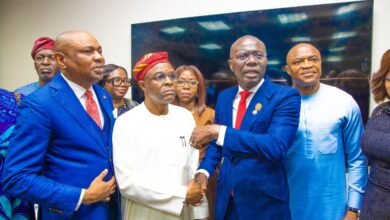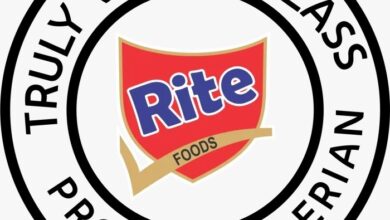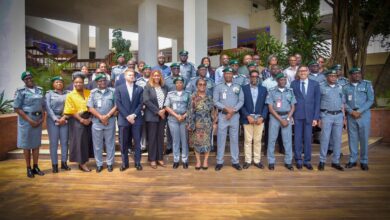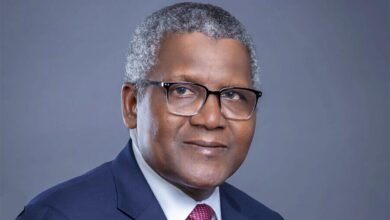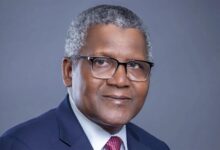Customs Launches Landmark CSR Programme To Transform Communities
...As Ministers, WHO Laud Initiative
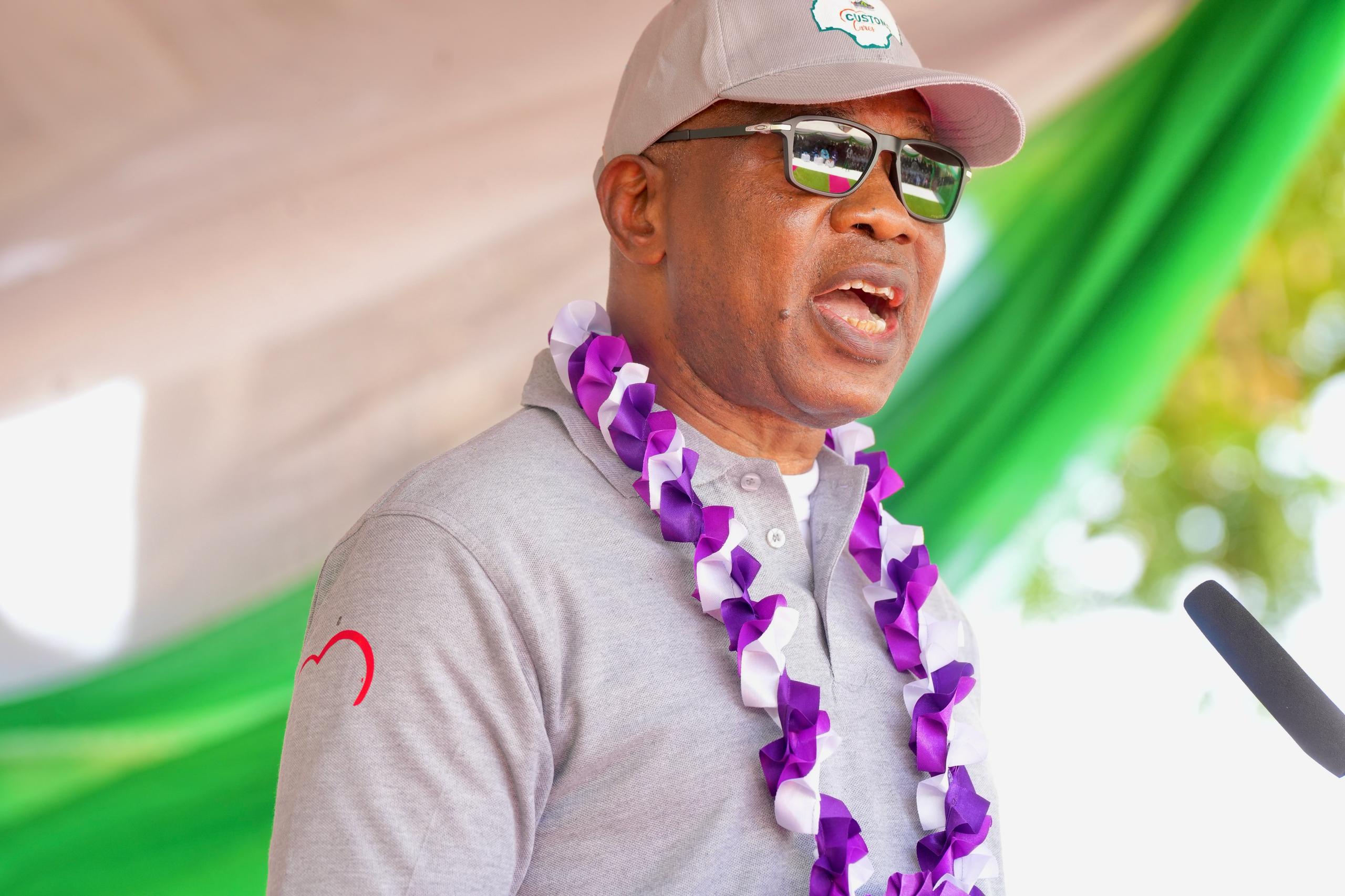
In a resounding demonstration of cross-sectoral collaboration for national progress, the Ministers of Finance, Education, and Youth Development, alongside representatives from the World Health Organization (WHO), gathered to witness the Nigeria Customs Service (NCS) launch of its ambitious ‘Customs Cares’ Corporate Social Responsibility (CSR) program—a pivotal initiative promising to ignite transformative change and foster sustainable development to communities nationwide.
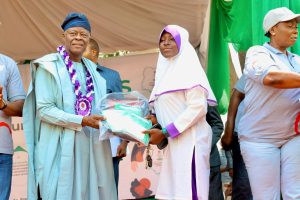 The initiative’s official launch, which marked the beginning of the Service’s long-term commitment to community empowerment, occurred on Thursday, 20 March 2025, in Government Secondary School, Wuse Zone 3, Abuja, where over 1,300 students benefited from the first phase of the programme.
The initiative’s official launch, which marked the beginning of the Service’s long-term commitment to community empowerment, occurred on Thursday, 20 March 2025, in Government Secondary School, Wuse Zone 3, Abuja, where over 1,300 students benefited from the first phase of the programme.
In his opening remarks, Comptroller-General of Customs Adewale Adeniyi described “Customs Cares” as a strategic response to Nigeria’s critical social, educational, and infrastructural gaps.
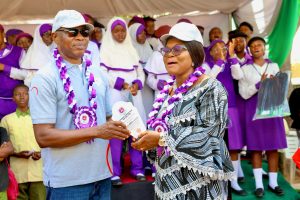 “The Customs Cares initiative represents our comprehensive approach to CSR, designed to foster inclusive growth and create sustainable impact across Nigerian communities where we operate.” He stated.
“The Customs Cares initiative represents our comprehensive approach to CSR, designed to foster inclusive growth and create sustainable impact across Nigerian communities where we operate.” He stated.
He noted that the programme, which will be rolled out in phases, aligns with President Bola Ahmed Tinubu’s Renewed Hope Agenda and the United Nation’s Sustainable Development Goals (SDGs).
 He said, “This initiative is strategically aligned with President Tinubu’s Renewed Hope Agenda, which prioritises holistic national development. Inspired by this framework, we focus on six key pillars, beginning with education.”
He said, “This initiative is strategically aligned with President Tinubu’s Renewed Hope Agenda, which prioritises holistic national development. Inspired by this framework, we focus on six key pillars, beginning with education.”
Speaking on the initiative’s first phase, CGC Adeniyi highlighted the NCS’s commitment to education, noting that Government Secondary School, Wuse Zone 3, was carefully selected based on historical ties and pressing infrastructural needs.
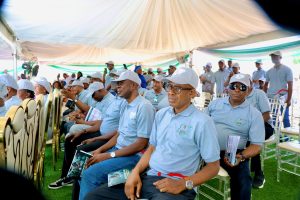 “We have prioritised education because human capital development is fundamental to national prosperity. This initiative is not just about donations but long-term commitments to sustainable development.” He emphasised.
“We have prioritised education because human capital development is fundamental to national prosperity. This initiative is not just about donations but long-term commitments to sustainable development.” He emphasised.
He further announced that the initiative would be expanded across the Federal Capital Territory (FCT), with the adoption of one School in each Local Area Council, ensuring tailored interventions to address each institution’s needs.
“These school adoptions, including GSS Wuse Zone 3, are long-term commitments. We will continue to impact these institutions over the years, ensuring sustainable development rather than one-time interventions.” The CGC assured.
Minister of Finance and Coordinating Minister of the Economy, Wale Edun, commended the Nigeria Customs Service for demonstrating a strong commitment to national development beyond revenue generation.
“The Customs Cares initiative is a game-changer. It exemplifies how government institutions can integrate social impact into their core mandate. I commend the Comptroller-General of Customs for this visionary leadership, and I assure you that the Ministry of Finance fully supports this initiative.” Minister Edun stated.
On her part, Comptroller Patience Ibrahim, who heads the Corporate Social Responsibility Unit, outlined the Service’s broader vision for improving healthcare, social infrastructure, and environmental sustainability.
“We will deploy mobile clinics, conduct medical outreaches, and implement anti-malaria campaigns to improve community health, particularly in underserved areas of our operations.” She said.
She further disclosed that the NCS will initiate water borehole projects, upgrade electricity infrastructure, and facilitate skills acquisition programmes, empowering individuals and fostering economic self-reliance.
“In our quest to ensure that no Nigerian goes hungry, we will support agricultural extension services, facilitate food donations, and improve market access for farmers, thereby strengthening the agricultural value chain.” She added.
The Comptroller, however, described the choice of Government Secondary School, Wuse Zone 3, as symbolic, representing the Service’s dedication to education and youth empowerment.
Minister of Education Olatunji Alausa praised the Comptroller-General of Customs and his team for aligning the initiative with President Tinubu’s vision for a transformed educational system in Nigeria.
“President Tinubu believes in human capital development. When we talk about this, it centres on the youth and our future. This administration’s top priorities are education, healthcare, social investment, and food security.” Olatunji stated.
While commending the NCS for prioritising education, he encouraged the Service to work closely with the Universal Basic Education Commission (UBEC) and the Nigerian Senior Secondary Education Commission (NSSEC) to enhance programme effectiveness.
“Aligning efforts with these agencies will lead to greater impact and ensure that targeted interventions are based on data-driven priorities.” He advised.
Minister of Youth Development Ayodele Olawande also commended the Customs Cares Initiative, describing it as a model for how government agencies can contribute to national development beyond their core mandates.
“Investing in youth development through education aligns with the federal government’s commitment to building a skilled and productive generation.” He said.
The Principal of Government Secondary School, Wuse Zone 3, Josephine Ugwu, expressed profound gratitude to the Nigeria Customs Service for selecting the School as the pilot location for the Customs Cares initiative.
“This is a historic moment for our school. The Nigeria Customs Service has invested in our students and strengthened the foundation for their future.” She said.
She further noted that installing security infrastructure and providing learning materials would significantly improve the school’s academic environment.
The launch of “Customs Cares” attracted several distinguished personalities, including representatives of the World Health Organization (WHO), Deputy Comptrollers-General of Customs, Assistant Comptrollers-General of Customs, heads of various Customs formations, local community leaders, and other key stakeholders.






